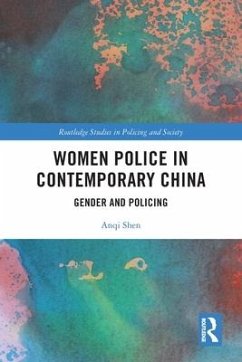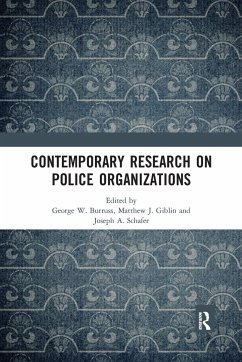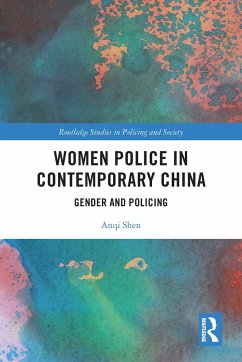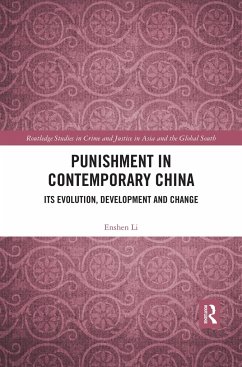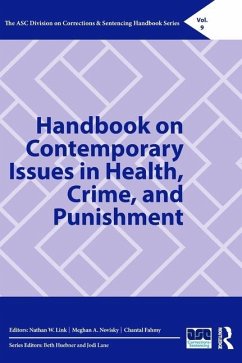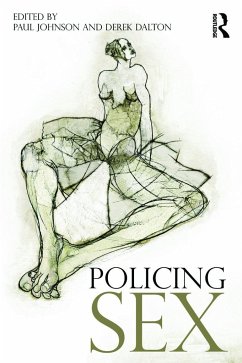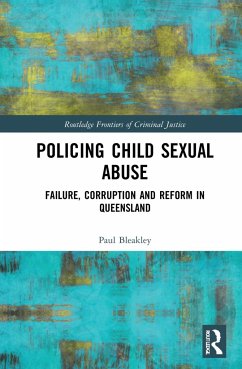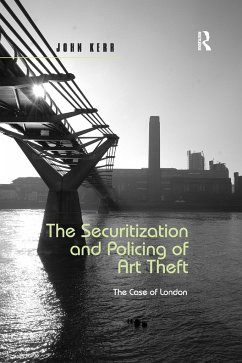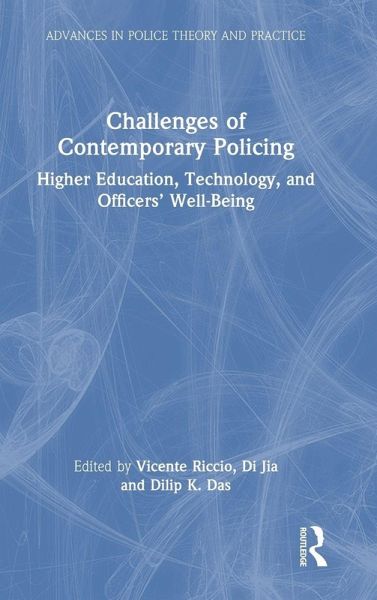
Gebundenes Buch
Challenges of Contemporary Policing
Higher Education, Technology, and Officers' Well-Being
Herausgeber: Riccio, Vicente; Das, Dilip K.; Jia, Di
Versandkostenfrei!
Versandfertig in 1-2 Wochen

PAYBACK Punkte
90 °P sammeln!




This edited collection reflects contemporary challenges faced by police forces across the globe and the role of technology in addressing them.
Vicente Riccio holds a doctorate in Sociology from Instituto Universitário de Pesquisas do Rio de Janeiro and was the coordinator of the graduate program of Law and Innovation at the Federal University of Juiz de Fora (2017-2023), Brazil. He also has worked as a consultant for many public institutions in Brazil, such as the Ministry of Justice, the Public Security Secretary of Rio de Janeiro, and the Civil Police of Amazonas. His research interests are police reform, legal systems in developing democracies, media, justice and video evidence. He has coedited Police and Society in Brazil (Routledge) with Wesley Skogan (Northwestern University). He has also published articles and book chapters in both international and Brazilian publications. Di Jia is Associate Professor in the Department of Criminal Justice and Criminology at MSU Denver. After receiving her Ph.D. from the College of Criminal Justice at Sam Houston State University, Dr. Jia has committed to teaching in criminal justice. As a former law enforcement officer in emergency and crisis policing, she applies her research and working experience to the classroom. Her teaching/research interests include Police Systems and Practices, Crime Analysis, Homeland Security and Crisis Management, and International and Comparative Studies on Criminal Justice Issues. Dilip K. Das is the Founding President of the International Police Executive Symposium, IPES, and the Founding and former Editor-in-Chief of Police Practice and Research: An International Journal. He is the current editor of Advances in Police Theory and Practice, and Interviews with Global Leaders in Policing, Courts and Prisons. Dr. Das has also worked as Human Rights Consultant for the United Nations and is professor of Criminal Justice. He currently teaches at the Coppin State University in Baltimore. He has also authored and coauthored diverse books in the field of Criminal Justice.
Produktdetails
- Verlag: Routledge
- Seitenzahl: 266
- Erscheinungstermin: 2. Oktober 2024
- Englisch
- Abmessung: 235mm x 157mm x 19mm
- Gewicht: 540g
- ISBN-13: 9781032589695
- ISBN-10: 1032589698
- Artikelnr.: 70149715
Herstellerkennzeichnung
Libri GmbH
Europaallee 1
36244 Bad Hersfeld
gpsr@libri.de
Für dieses Produkt wurde noch keine Bewertung abgegeben. Wir würden uns sehr freuen, wenn du die erste Bewertung schreibst!
Eine Bewertung schreiben
Eine Bewertung schreiben
Andere Kunden interessierten sich für




